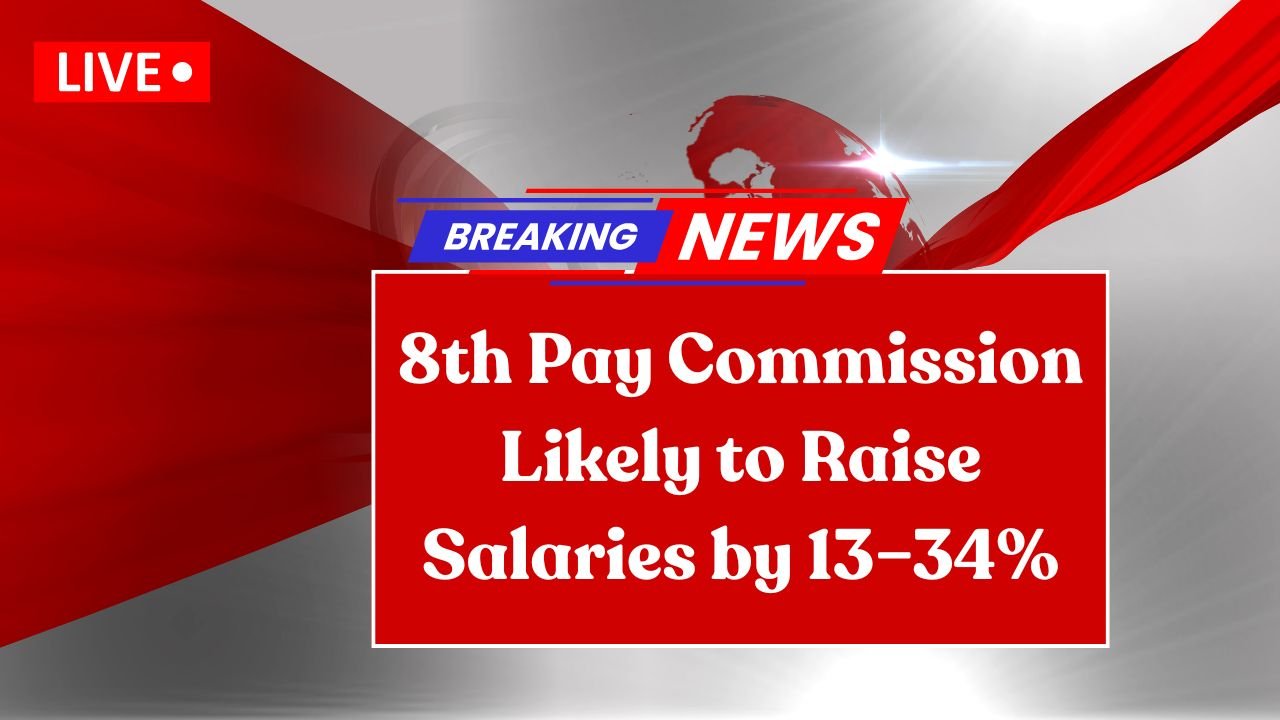For central government employees, money security is very important. A fixed monthly salary and a good pension after retirement bring peace of mind. With the 8th Pay Commission coming soon, nearly 49 lakh employees and 65 lakh pensioners are waiting for updates. They hope for a salary hike that can improve daily life.
Lessons from the 7th Pay Commission
The 7th Pay Commission started in January 2016. It brought many changes. The fitment factor was set at 2.57, which gave an average salary hike of about 23.55 percent. This increase made a big difference compared to the 6th Pay Commission, which had a factor of 1.86.
Another big change was in allowances. Out of 196 allowances, 52 were removed and 36 were merged. Some employees were unhappy about losing perks, but the government wanted a simple pay system. This made salaries clearer and less confusing for everyone.
What to Expect from the 8th Pay Commission
Experts think the 8th Pay Commission will make the pay system even simpler. Old allowances may not be needed now, so the focus could be on basic pay and dearness allowance. Smaller allowances may be removed or merged. But the government usually balances this by increasing basic pay or DA. The goal is to keep income fair and easy to understand.
Allowances That May Be Reviewed
Some allowances may be changed. Travel allowances may be merged since new systems make many categories less useful. Special duty allowances for certain jobs could also be adjusted. Regional and department-specific allowances may also be reviewed. The idea is to simplify without reducing income.
Timeline for Implementation
A new pay commission usually comes every 10 years. The 7th started in 2016, so the 8th is expected around January 2026. But the government has not announced anything yet. The commission, chairperson, and terms are still to be declared. After this, employees will get a clearer picture.
Possible Salary Increase
Employees are most curious about salary hikes. Experts say the fitment factor may be between 1.83 and 2.86. If it is low, the increase will be small. If it is high, employees may see a big rise in take-home pay. Pensioners will also benefit because pensions depend on the last drawn salary.
Why the Hike Matters
This hike is not only about more income. It helps in dealing with rising living costs, medical bills, and inflation. Since pay commissions come only once in 10 years, this is a rare chance to match salaries with today’s economy. Higher pay will help with children’s education, loans, and savings. Pensioners will also find relief from increasing health expenses.
Challenges for the Government
The government must balance employee hopes with the national budget. A very big salary hike can put pressure on public money. At the same time, the gap between government and private jobs should not become too large. A middle path is needed to keep both sides happy.
How Employees Can Prepare
Employees should keep track of official updates. They should plan finances early and learn how changes in allowances may affect income. Being aware will help them adjust better when new rules are announced.
Disclaimer: This article is for general information only. It does not provide any official update or financial advice. Please follow government notifications for confirmed details,
FAQs
What is the 8th Pay Commission?
It is the next pay revision for central government staff and pensioners.
When will it start?
It is expected around January 2026.
Who will benefit?
Nearly 49 lakh employees and 65 lakh pensioners.
How much salary hike is expected?
The fitment factor may be between 1.83 and 2.86.
Will pensions also increase?
Yes, pensions will rise as they depend on last salary.





